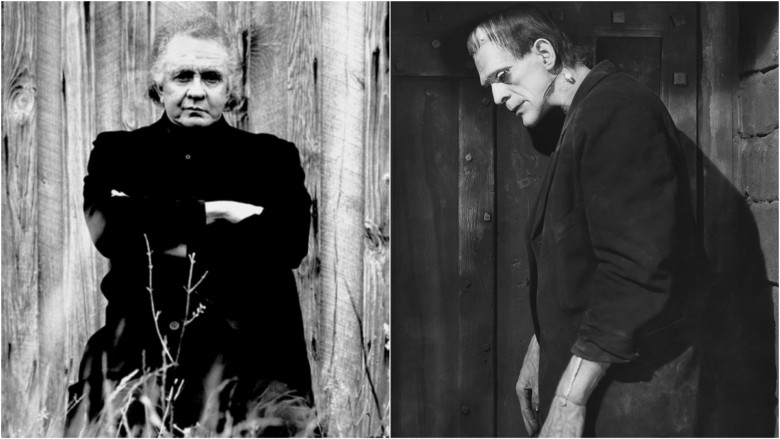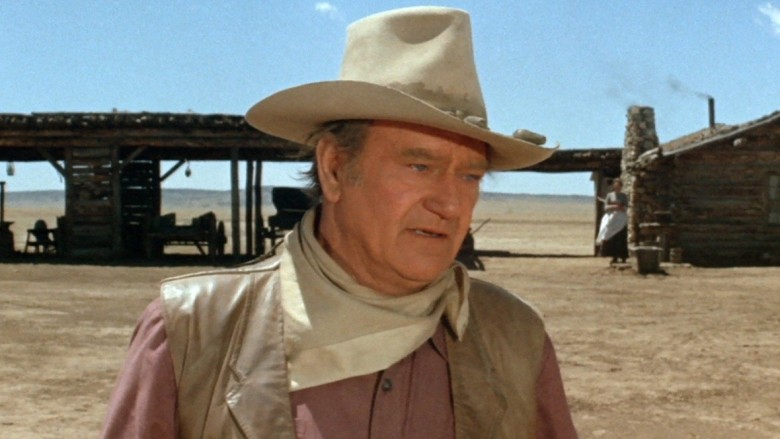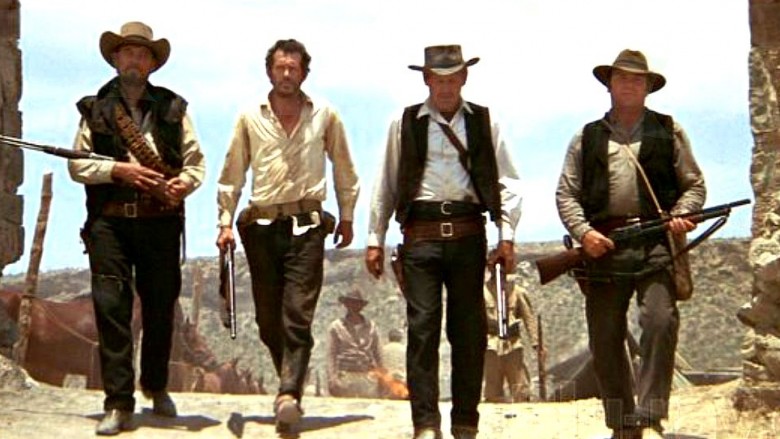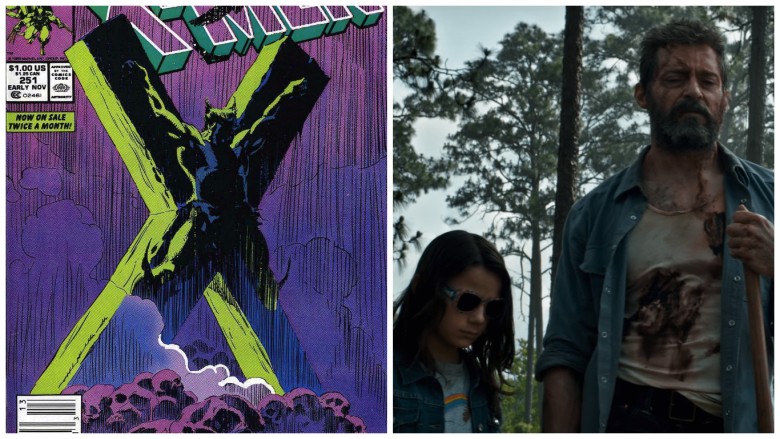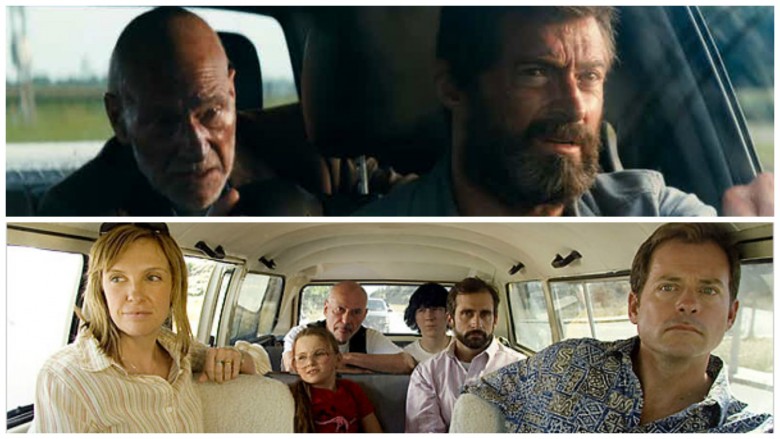The Unexpected Influences Behind Logan
A lot goes into making a movie like Logan. Many strange, unseen forces must align to bring such a fine piece of superhero cinema into existence. Let's take a look at some of the people and things that helped make 2017's greatest superhero movie possible. Logan spoilers ahead!
Shane
If you've seen Logan, you expected to see this one on the list. (If you haven't seen Logan, why are you reading this? Spoilers galore! Consider this spoiler warning numero dos.) Still a technically important film, Shane hasn't aged all that well; it's really slow. That said, there was nothing like it at the time. Here's Roger Ebert on why Shane is important: "[Despite the villain wearing a black hat and the hero wearing a white hat,] the buried psychology is a mottled, uneasy, fascinating gray." It's that sort of moral ambiguity that Logan picks up and runs with. But, as IGN points out in a piece on the connections between the two films, "there's also the notion of trying to impart on the younger generation a more peaceful way of living."
Mark Millar
A polarizing figure in Marvel comics, Mark Millar wins fans for his gritty take on superhero storytelling and loses just as many for chronically deviating from established canon in the name of, well, being gritty. That said, a notable standout is his Old Man Logan story arc. Because it makes no pretense of hewing to canon, the series allowed Millar to do what he does best: reimagine established characters in unlikely settings, behaving in ways contrary to readers' expectations. What we're trying to say is, as much as we would prefer to deny it, Old Man Logan is pretty good—and not just on the "good for Millar" scale his critics use.
Taking place in an alternate universe in which most superheroes have long since been killed, Old Man Logan depicts Logan as a guilt-ridden pacifist who's vowed never to use his claws again. Indebted to an inbred gang of Hulks, he sets out on a road trip with Hawkeye (now blind) to deliver a mysterious package and get square with the Hulks so they'll stop terrorizing him and his family. (Also, Logan has a family. Weird, right?) Naturally, it all goes remarkably badly as we learn the real reason Logan refuses to use his claws: long ago, Mysterio tricked him into murdering most of the X-Men.
We're glad to see a (very) loose adaptation of Old Man Logan finally come to theaters. That said, good as its comic source material is, Logan is better. James Mangold and his team adapted Millar's tale of guilt and rage into something darker and smarter. We'd trade blind Hawkeye for senile, accidentally genocidal Dr. Xavier any day.
Christian Bale
Dig Logan? Thank Christian Bale—and not just because he helped Hugh Jackman's star rise with The Prestige. Bale was supposed to film The Deep Blue Goodby with Logan director James Mangold in 2015, but two weeks prior to filming, Bale tore his ACL, leading to the film eventually being canceled; this freed up Mangold's schedule for the project that would become Logan. On second thought, considering Bale's documented history of outbursts, maybe keep the thank-yous on the telepathic plane, Xavier-style.
Johnny Cash and James Whale
Logan's end credits roll to the tune of Johnny Cash's "The Man Comes Around," but that's not the film's only Cash connection. Cash's persona as the outlaw Man in Black served as an inspiration for Logan's character, according to Logan director James Mangold, who also directed the critically acclaimed Cash biopic Walk the Line.
Speaking with Creative Screenwriting about Logan's production, Mangold relayed a story Cash himself told him in his final days. As a child, Cash went to see James Whale's Frankenstein in the theaters when he was a child. Noting how frightened his fellow moviegoers were of the monster, Cash explained why he wasn't scared: "I identified with Frankenstein because I felt I also was made up of all these bad parts."
Mangold said he could imagine Logan saying the exact same thing, explaining, "[Logan] is a character that feels in some way cursed and made dark by God, and is forced to live in this body with this destiny of violence and regret." Has Hollywood finally found a movie director who takes the X-Men seriously? Sure looks that way.
John Wayne
Critics have pointed out the similarities between John Wayne and Wolverine of the Uncanny X-Men comics. John Wayne is the archetypal rugged individualist of classic westerns. Unsurprisingly, his legacy as the Silver Screen's original cool-headed no-nonsense lawman inspired a series of comic books about his adventures. The Duke maintains a presence in comics via writers such as Garth Ennis—whose Jesse Custer imagines Wayne as a sort of spirit guide in Preacher and whose Punisher notoriously runs over Wolverine with a steamroller in an issue of Marvel Knights.
Logan's connection to Wayne goes deeper than the Duke and Wolverine's shared roots in comics, however: James Mangold told BFI that Wayne's character in the 1972 movie The Cowboys was an inspiration.
Sam Peckinpah
Legendary (and legendarily self-destructive) director Sam Peckinpah reinvigorated the western genre with boldfaced celebrations of murderous yet principled scoundrels. Bring Me the Head of Alfredo Garcia, Pat Garrett and Billy the Kid, The Ballad of Cable Hogue, and his blood-drenched masterpiece The Wild Bunch took the genre of heroes and villains—white hats versus black hats—and muddied the waters with moral relativity. He also brought the violence to the fore, spilling copious amounts of blood in every gunfight, often in sensationalistic slow motion.
Logan's onscreen gore distinguishes it from the more or less bloodless PG-13 norm for superhero movies in the same way that The Wild Bunch distinguished itself from classic westerns. In particular, the scene at the Munsons' home owes its slow-motion shots of blood and gore to Peckinpah's legacy.
Jerry Seinfeld
No joke: At a dinner party in 2013, Jerry Seinfeld inspired Hugh Jackman to push for a conclusive ending to Wolverine's story. Seinfeld and Jackman are pals. (Who knew?) Seinfeld, who famously ended his "show about nothing" at the height of its popularity, offered Jackman some advice about when to call it quits on his run as James "Logan" Howlett. "You have to leave something in the tank," cautioned Seinfeld, effectively saying: don't burn out and don't fade away. Know when to ride off into the sunset.
Relating the story in an interview with Entertainment Weekly, Jackman makes it obvious that he took the advice to heart. He sees Logan as "a film [for his kids—and their kids], that could be definitive for the [Wolverine] character." Logan isn't another "victory lap." It's a purposeful goodbye.
Chris Claremont, Marc Silvestri, and Dan Green
Created by Roy Thomas, Len Wein, and John Romita Sr. and making his full debut in The Incredible Hulk #181 in 1974, Wolverine has had many incarnations over the years—but one, in particular, had a profound effect on Logan. According to Empire Online, the haunting final shot of the crucifix turned sideways to resemble an X comes from the cover of Chris Claremont's Uncanny X-Men Vol 1 #251, illustrated by Marc Silvestri and Dan Green.
Elmore Leonard
One of Logan's screenwriters, Scott Frank, wrote both Get Shorty and Out of Sight, two screen adaptations of Elmore Leonard novels, and director James Mangold previously adapted another of Leonard's works, 3:10 to Yuma. Leonard's sardonic, neo-noir novels have been adapted for the movies over 20 times. Leonard knew cool. His influence is everywhere. Are you a fan of Timothy Olyphant's character in Justified? What about Quentin Tarantino's crime caper Jackie Brown? Congratulations, you're an Elmore Leonard fan.
Without Elmore Leonard's contributions to crime fiction, there would be no Get Shorty, no Out of Sight, no 3:10 to Yuma—and, in all probability, no Logan.
Little Miss Sunshine
Apparently, James Mangold pitched Logan as "a really bloody Little Miss Sunshine with superheroes." Having watched Logan, we're sort of shocked at just how aptly the pitch describes the final product. It's another darkly comic foul-mouthed road trip movie with a jaded father, a crankier old man, and a little girl who unexpectedly steals the show—also, there are superheroes. Of course, depending upon how you feel about Friedrich Nietzsche (or crotchety grandpas who say the darnedest things), Little Miss Sunshine could already be a superhero movie.




